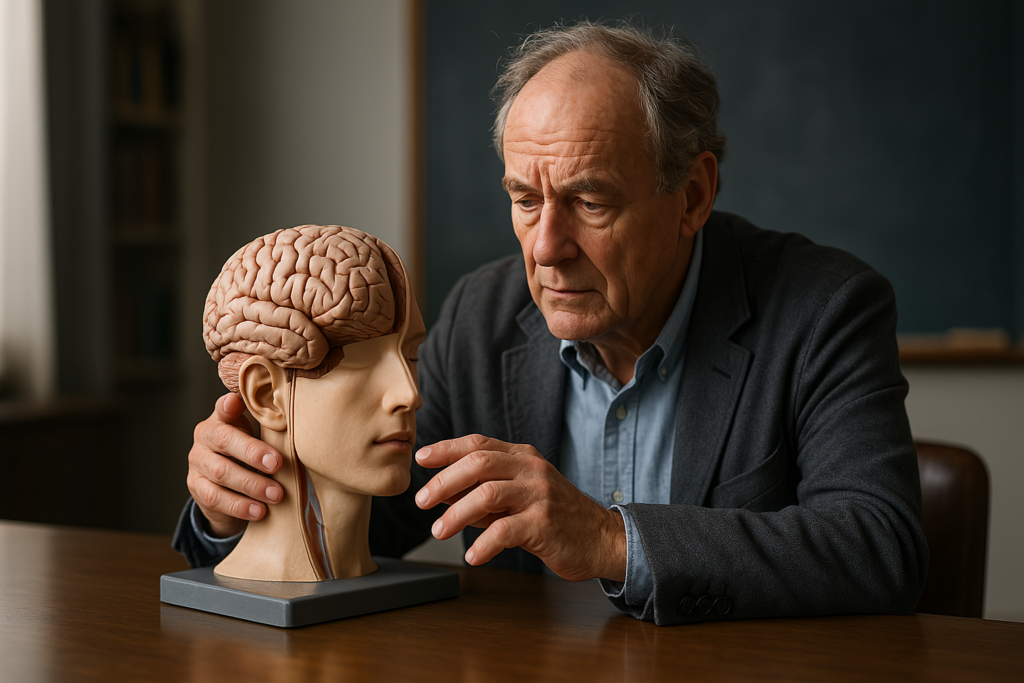Dividing the Brain, Unifying the Mind: Exploring the Paradox of Consciousness
How Neuroscience, Quantum Theory, and Split-Brain Research Challenge Our Understanding of Identity
The concept of splitting the mind by splitting the brain has long fascinated both scientists and philosophers. Early split-brain studies in the mid-20th century opened up a window into the modular nature of our neural architecture, suggesting that dividing the brain’s hemispheres might also divide conscious experience. This provocative idea has since evolved into a broader discussion about whether the mind is a unified whole or a collection of specialized subsystems. Recent debates—such as the one featured by a WUSTL physicist at a New York roundtable—have reinvigorated this conversation, challenging traditional notions of identity and selfhood.
In landmark experiments with split-brain patients, researchers observed that the separation of the corpus callosum can lead to seemingly independent streams of perception and action. Patients often displayed behaviors that hinted at dual processing: one hemisphere might recognize an object or word while the other remained unaware of it. These findings have spurred questions about the nature of consciousness itself: Is the mind merely a byproduct of neural circuitry, or does it possess qualities that transcend simple anatomical divisions? Such experiments underscore the complexity of the brain and raise critical questions about what it means to be “whole.”
Adding a layer of intrigue to the discussion is the emerging field of quantum mind theory, which posits that quantum processes may underlie aspects of consciousness. The debate highlighted by the WUSTL physicist touches on how non-locality and the probabilistic nature of quantum mechanics might offer insights into the subjective experience. Some proponents argue that classical neuroscience cannot fully account for the enigmatic qualities of the mind, suggesting instead that quantum events—occurring at scales traditionally thought irrelevant to brain function—might play a pivotal role in shaping our internal world.
However, many in the neuroscience community remain skeptical of attributing consciousness to quantum phenomena. Critics argue that while quantum mechanics governs the behavior of subatomic particles, its effects are unlikely to scale up to the level of complex neural processes without significant evidence. This skepticism is rooted in a desire to maintain a rigorous, evidence-based approach to understanding the brain. Despite the controversy, the dialogue between classical neuroscience and quantum theories has opened up fresh avenues for exploration, enriching our conceptual frameworks for discussing mind and self.
Modern research continues to reveal that the brain operates through a delicate balance of specialized regions that work in concert, rather than as isolated islands of function. Studies published in reputable scientific journals have shown that even in split-brain patients, the remaining neural networks compensate to maintain a coherent, if sometimes fragmented, sense of identity. This adaptability suggests that consciousness might be more resilient and integrative than the idea of a strictly divided mind would imply. The interplay between neural specialization and holistic experience remains a core mystery that drives contemporary inquiry.
Bridging the divide between these classical and quantum perspectives, some researchers propose that the nature of consciousness may be inherently dualistic—embodying both the determinism of neural circuits and the unpredictability of quantum events. This integrative view posits that while the brain’s physical structure provides the framework for thought, it may be the subtle, underlying quantum processes that imbue these neural networks with the capacity for self-awareness and creativity. Such a synthesis not only enriches our understanding of the mind but also resonates with ancient philosophical traditions that view consciousness as a dynamic interplay between the material and the immaterial.
In conclusion, the exploration of whether you can split the mind by splitting the brain invites us to reconsider the boundaries between the physical and the experiential. The dialogue between split-brain research and quantum theories of consciousness challenges our preconceptions and encourages a deeper inquiry into what constitutes the self. As we unravel the mysteries of the brain, we are reminded that the journey toward understanding the mind is as much about questioning our assumptions as it is about discovering new evidence. For readers like you, John, and all who are passionate about the interplay between science, philosophy, and the evolution of thought, this ongoing conversation promises to be as dynamic and multifaceted as the human experience itself.
Key Takeaways:
- Insight: The exploration of split-brain research reveals that the mind may not be a single, unified entity, but rather a complex interplay of specialized neural systems.
- Evidence: Empirical findings from split-brain patients and emerging discussions in quantum mind theory provide compelling, though sometimes controversial, perspectives on consciousness.
- Reflection: Integrating classical neuroscience with quantum insights encourages us to rethink identity and selfhood, opening the door to a richer understanding of what it means to be conscious.
“The mind is not merely the sum of its parts, but a dynamic interplay between the known and the mysterious.”
Dive deeper into this fascinating interplay of science and philosophy on SpeciesUniverse.com. Join the conversation, share your thoughts, and explore related content to continue uncovering the mysteries of the mind and the universe.
More details: here
References:
- Psychology Today (Website)
-
CGP Grey (YouTube Channel)


Leave a Reply